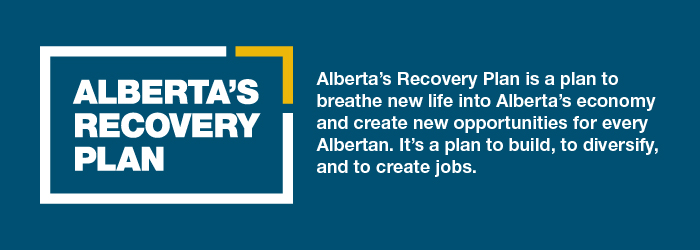To ensure money stays in the pockets of Alberta’s job creators, the government is introducing a revenue-tested tourism levy abatement. Eligible accommodation providers with a 40 per cent decline in room revenue compared with 2019 will be able to keep tourism levy amounts collected between Oct. 1, 2021 and March 31, 2022. The 40 per cent revenue drop strikes a balance between the revenue thresholds of the Small and Medium Enterprise Relaunch Grant (30 per cent decline), British Columbia’s Small and Medium-Sized Recovery Grant (30 per cent) and Ontario’s Tourism Recovery Program (50 per cent).
This six-month abatement period will free up additional cash flow for eligible operators to employ staff, continue operations and provide valuable services through the winter season.
“With increasing vaccinations in Alberta, activity in the tourism sector had begun to pick up. With the emergence of the Omicron variant and evolving border measures, we are abating the tourism levy again to support the hardest hit operators in the tourism sector by providing them with cash flow to get through this.”
“The tourism levy abatement leaves money in the hands of employers in the tourism industry, helping them retain staff and continue operating during a challenging time for their sector. We’re pleased to extend the abatement to offer lodging providers additional cash flow during the pandemic.”
“Tourism is the lifeblood of many communities across Alberta, and abating the tourism levy will ensure that accommodation operators, many of them small business owners, are getting much-needed cash flow in this difficult time. With more than $50 million in support so far, we are continuing to be there to support our tourism industry.”
The revenue-tested abatement will be administered using the Tax and Revenue Administration Client Self-Service (TRACS) secure online portal for the majority of hotels. The system will determine whether an accommodation provider is eligible for the abatement for each period. Implementing this program will take up to six weeks.
Revenue for each collection period (i.e., month or quarter) of the abatement period will be the amount of room revenue that is subject to the tourism levy. Accomodation providers that were not required to collect tourism levy in the corresponding month or quarter of 2019, hosts providing short-term accommodation in residential units and hotels not in operation in 2019 are not eligible for the tourism levy abatement.
Eligible accommodation providers that have already remitted tourism levy amounts collected on or after Oct. 1 will automatically receive a refund from Alberta’s Tax and Revenue Administration
Accomodation providers are still required to file returns as per the Tourism Levy Act and will be expected to resume regular tourism levy remittances of amounts collected on or after April 1, 2022.
Additional information on program qualifications, processes and timing for refunds of tourism levy already remitted will be provided on the Tourism levy page on alberta.ca in the coming days.
Quick facts
- Alberta’s government previously approved the abatement of the tourism levy from March 1, 2020 to June 30, 2021.
- Almost $47 million in capital was freed up for the sector throughout the original 18-month abatement period.
- The Government of Alberta and Travel Alberta have provided support during the pandemic:
- $8 million to support the five main Destination Management Organizations (Calgary, Edmonton, Canmore, Banff and Jasper)
- $6 million for 51 capital infrastructure and asset projects for operators
- $5.4 million for cooperative marketing initiatives
- $4 million to restart major meetings and events
- Accommodation providers with shared amenities (for example, banquet halls, pools and restaurants) are also eligible for $2,000 under the Restrictions Exemption Program Implementation Grant.
- In 2019, tourism spending by visitors contributed to the provincial economy with:
- 68,000 tourism jobs (full-time equivalent employment in person years)
- $6.5 billion to Alberta’s GDP ($3.9 billion direct, $1.5 billion indirect and $1.1 billion induced)
- Additional supports for the tourism sector are available through the federal government.
